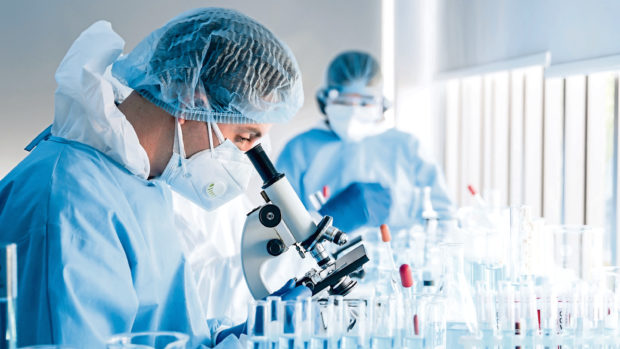Precious few tears would have been shed on Hogmanay for the passing of 2020.
Celebrating New Year virtually imprisoned in our homes by Government decree was unimaginable this time last year.
2020 will be remembered as one of the most difficult and challenging years we have ever faced.
Millions have lost their lives, economies have been wrecked, businesses closed and jobs lost all because of a virus that jumped from animals to humans in a Chinese wet market.
Looking back what strikes me most is how well people have adapted to cope with the threat from the virus.
We have learned to live with social distancing and to disinfect our hands everywhere we go.
But by far the most difficult change to cope with is being unable to mix with our family and friends.
At work huge swathes of the population overnight found themselves working from their living rooms instead of going to their offices leaving city centres deserted and empty.
Teams and Zoom have become the mainstay of doing business and even farmers have adapted to this new-fangled digital world.
At AHDB we were forced to move our monitor farms online and to our surprise the number of farmers taking part or watching after far surpassed the numbers who would have attended an actual event.
The crisis has also brought home to consumers that supermarket shelves groaning with every kind of food available 24 hours a day are not a given.
In the early days of lockdown people were panic buying and there was a real danger of food shortages.
The food industry showed how strong, resilient and robust its supply chain is by quickly responding to meet the huge switch in consumer demand as people were forced to cook at home instead of eating out.
I would like to think that experience has made consumers recognise that farmers and growers who work seven days a week to put food on our tables are just as important as those who work in the health service and care sector.
The outlook for the New Year would have been pretty bleak if our scientists had not come up trump with new vaccines.
Developing a vaccine to fight this virus only 10 months after the outbreak started is nothing short of miraculous.
At the heart of that miracle is genetic engineering which allowed scientists to precisely construct an effective vaccine that works.
The precision of the technology was summed up for me when one of the virus experts was recently asked on the BBC if the vaccine would work on the new variant of the virus.
He said: “The genetic code is like an email; we just go in and precisely adjust a few letters in it to reflect the change in the virus.”
These genetically engineered vaccines will literally save millions of lives, allow economies and businesses to thrive again and save jobs.
Yet these precision genetic techniques, which have the potential to revolutionise crop breeding and vaccine development for animals, are being denied to the farming industry by the SNP Government.
Surely it is time our politicians used their common sense, ended the hypocrisy and recognised these tools are part of the solution in the move to a more sustainable agriculture.
- George Lyon is a former MEP.
